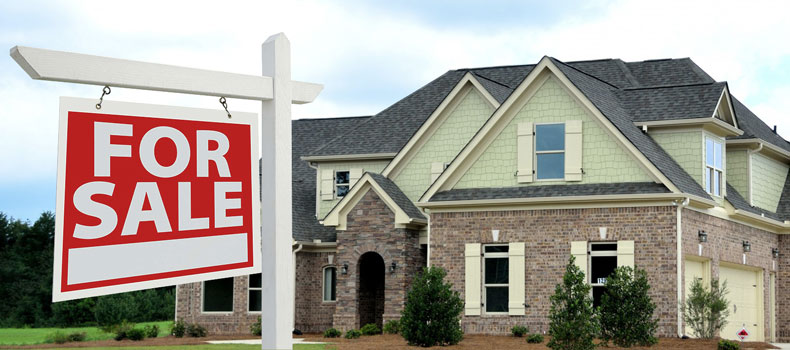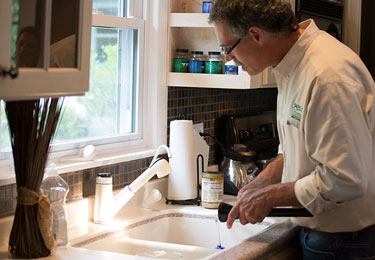
While home inspections are typically used by home buyers, you — as the seller — also have a lot riding on this transaction. Renegotiations after an inspection may result in you needing to make repairs, a reduction in the price, or if more serious issues are discovered, revocation of the offer from the buyer.
Put yourself in a stronger position for negotiations, and maximize your sale price, by having your home inspected before listing it on the market. If you choose to make repairs before listing, you'll have plenty of time. Fix issues at your leisure, with no looming deadlines.
Go into negotiations with more control and ensure a quicker, smoother transaction. Findings from a buyer's inspection can catch you off guard, just as it can the buyer. If that happens, then you'll be under pressure to correct the problem quickly or lower the price. If a major problem is discovered, or negotiations break down, then the transaction is in jeopardy. And when a deal falls through, no one wins.

Many strangers will be entering your home during the selling process, some more respectful than others. You can rest assured that I respect your time and property as though it were my own. I strive to always be on time and take every precaution to avoid causing any damage to your property. By the time I am finished, it should be as though I was never even there.

It's your home. You probably know it inside and out. However, you might underestimate or not even notice some issues. A home inspection is still incredibly helpful because a home inspector is trained to notice things that most people won't. Your home inspector also has a lot of experience to draw on when assessing any problems they encounter.
Although normally used for home buyers, pre-listing inspections are becoming more common.
As the seller, there a few things you can do to prepare for the inspection. Being prepared will help the inspection go smoothly and increase your home's appeal to potential buyers.
This may be stating the obvious, but it's imperative that your house is as clean as possible. Not only does this increase your home's appeal, but it also helps the inspector by making it easier to move around and access various areas of interest.
Utilities need to be connected so the inspector can test things like water flow, electrical outlets, water heaters, furnace, air conditioning, and so on. Without the utilities connected, the home inspector will have no choice but to either reschedule or suggest inspection by a specialist.
Appliances that are not connected to water, power, oil, or gas cannot be turned on by the home inspector. All appliances should be working properly, and abandoned appliances should be removed.
In the Winter, try to provide a path around your house. In the Summer, clear away any overgrowth or dead branches that come into contact with the home.
This may seem silly, but make sure the house number is visible from the street. People are going to need to check out the house, so you'll want to make sure they can find it without any trouble.
Evanspect provides pre-listing home inspections in Seattle, Bellevue, Issaquah, south King County, and north Pierce County. Not sure if that's you? Give me a call at (206) 854-5593 or send me an email.